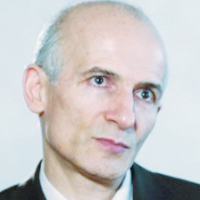A reflection on models of teaching sociology based on the lived experience of a group of constituencies: A Grounded Theory-driven Model
This study aimed to examine different models of teaching sociology in Iran, using Glaserschr('39') Grounded Theory (GT) method. A total of 19 doctoral students were participated in this study. Participants were selected through a targeted and theoretical sampling method and underwent semi-structured interviews to the point of data and theoretical saturation. The data were analyzed in three stages of open, axial and selective coding using Atlas.ti software (version 7) and finally, the theoretical model of the research emerged. The results showed that in the academic field of sociology education in public universities in Tehran, factors such as personality type and epistemological authority of professors, their distinctions and research programs, their academic and extra academic interactions, and media environments and social networks affect the social atmosphere of education. Characteristics of universities and disciplines, students’ social classes and their organizations, coupled with the political, legal and administrative environment, as well as technological environment underlies these effects. Of course some mediating variables, such as leadership style of university administrators, the life style of faculty members, faculty members’ ages and backgrounds, as well as sizes of educational departments are also involved in the process of influences and effects on the scope of the university. It such a situation we are witnessing strategic actions and reactions of faculty members and students and formation of five types of institutional models of teaching in sociology, i.e. classical, critical, applied, social and task-oriented-behavioral models accompanied with an en route hybrid ambiguous and contingency model that has not yet been fully developed and established. Current processes of sociology teaching in Iran have different outcomes, including credentialism, commodity-orientation, oligarchy, politicization, ritualism, scientific corruption, erosion of university’s social capital and ambiguity in its functioning, at the same time leading to levels of transferring of knowledge and sociological skills to individual, social and civil lives as well as formation of intellectual circles and paradigmatic changes.
- حق عضویت دریافتی صرف حمایت از نشریات عضو و نگهداری، تکمیل و توسعه مگیران میشود.
- پرداخت حق اشتراک و دانلود مقالات اجازه بازنشر آن در سایر رسانههای چاپی و دیجیتال را به کاربر نمیدهد.


